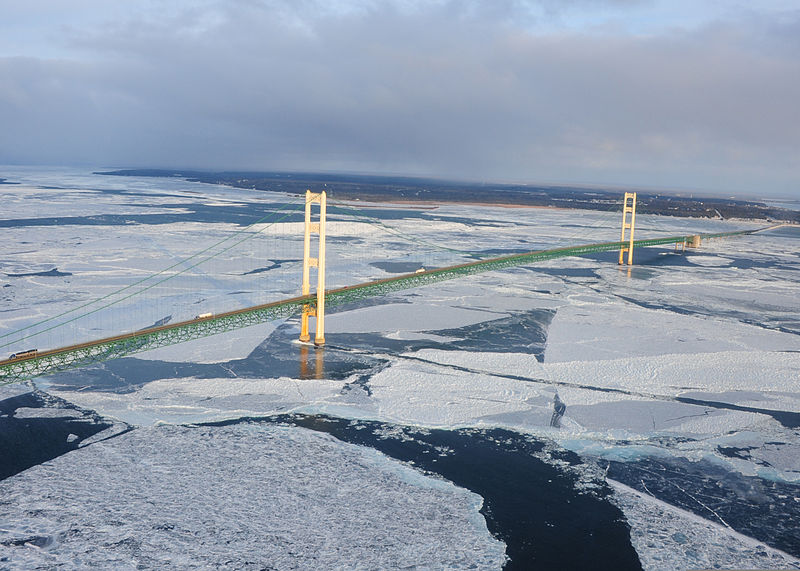The Latest: Pipeline Safety
There are nearly 70,000 miles of natural gas and hazardous liquid pipelines, zigzagging across our state.
Water is Michigan’s most valuable resource. Michigan is home to more than 11,000 inland lakes, 36,000 miles of rivers and streams, 5.5 million acres of wetlands and 3,200 miles of shoreline. These remarkable freshwater resources provide drinking water to millions of Michiganders, support critical habitats for aquatic species and drive our state’s water-based economy.
A recent University of Michigan study showed the potential risks of a spill at Enbridge’s Line 5 pipeline where it runs under the Straits of Mackinac. This study highlighted the risks that are involved with oil pipelines and the known and unknown impacts that a spill would have on the Great Lakes region. All told, under all of the 840 different time-of-year and weather scenarios under review, a total of more than 700 miles of Great Lakes shoreline could be vulnerable to a Line 5 leak, in both the U.S. and Canada. That’s about the distance between Detroit and Omaha, Nebraska!
The largest inland oil spill, and one of the costliest oil spills in U.S. history, happened right here in Michigan.
In 2010, Enbridge’s Line 6B ruptured near Marshall, Michigan. The release, estimated at 843,000 gallons, entered Talmadge Creek and flowed into the Kalamazoo River, a Lake Michigan tributary. During the clean up efforts, a state of emergency was declared by Kalamazoo County officials. Experts warned that the chemicals used in the pipeline could cause leukemia and anemia as well as other adverse side effects after prolonged periods of exposure. The Calhoun County Health Department advised over 50 families to evacuate their homes during the cleanup process.
Fighting for pipeline safety is vital to protecting Michigan’s economy, environment, public health and way of life.
Michigan has 23% of the world’s fresh surface water. Michigan has a unique heritage that was created through our connections to the Great Lakes. As a state, we must protect our waters from the risk of a catastrophic oil spill. Considering the age, condition, and location of Enbridge’s Line 5 pipeline under the Straits of Mackinac, it is time to shut down Line 5. There has got to be a better alternative to pumping dangerous petroleum products under our state’s most precious natural resource–our Great Lakes.
In the spring of 2016, Michigan LCV members from across the state galvanized a coalition of Democratic and Republican lawmakers who were able to hit the brakes on a bill that would eliminate your right to know about pipelines under the Great Lakes and through your own backyard. Read more about pipeline secrecy here >>

